Howard Alk
Nascimento : 1930-10-25, Chicago, Illinois, USA
Morte : 1982-01-01
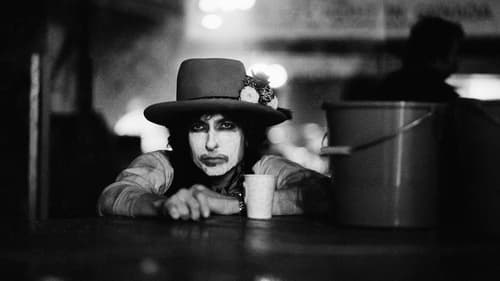
Director of Photography
Em 1975, Bob Dylan embarcou em uma turnê através dos Estados Unidos junto com diversos artistas, brincando com novas técnicas criativas e adotando uma teatralidade raramente vista em sua carreira. Unindo imagens de arquivo restauradas e novas entrevistas com Dylan, o diretor Martin Scorsese captura a experiência desse momento histórico tanto para a música, quanto para o espírito americano.

Camera Operator
65 Revisited é um documentário americano de 2007 dirigido por D. A. Pennebaker. Foi feito a partir de filmagens que o diretor fez para seu filme de 1967, Don't Look Back. Ambos os filmes mostram Bob Dylan e sua comitiva durante sua turnê de 1965 no Reino Unido. O filme mais recente inclui trechos de seu antecessor e adiciona várias apresentações de músicas completas.
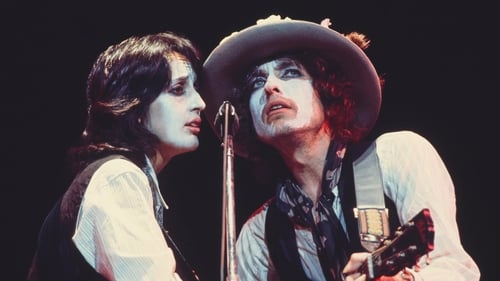
Editor
Filmed in the autumn of 1975 prior to and during Bob Dylan's Rolling Thunder Revue tour – featuring appearances and performances by Ronee Blakley, T-Bone Burnett, Jack Elliott, Allen Ginsberg, Arlo Guthrie, Ronnie Hawkins, Roger McGuinn, Joni Mitchell, Mick Ronson, Arlen Roth, Sam Shepard, and Harry Dean Stanton – the film incorporates three distinct film genres: concert footage, documentary interviews, and dramatic fictional vignettes reflective of Dylan's song lyrics and life.

Director of Photography
Filmed in the autumn of 1975 prior to and during Bob Dylan's Rolling Thunder Revue tour – featuring appearances and performances by Ronee Blakley, T-Bone Burnett, Jack Elliott, Allen Ginsberg, Arlo Guthrie, Ronnie Hawkins, Roger McGuinn, Joni Mitchell, Mick Ronson, Arlen Roth, Sam Shepard, and Harry Dean Stanton – the film incorporates three distinct film genres: concert footage, documentary interviews, and dramatic fictional vignettes reflective of Dylan's song lyrics and life.
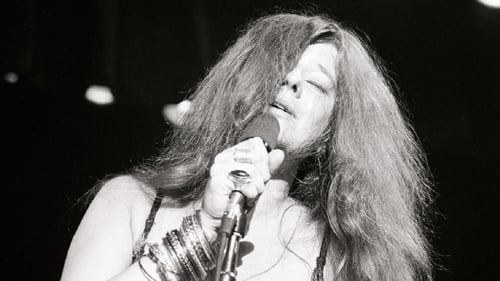
Writer
Released just a few years after her death, this forms a picture of who Janis was through interviews and performance clips.

Director
Released just a few years after her death, this forms a picture of who Janis was through interviews and performance clips.

Assistant Director
Eat the Document is a documentary of Bob Dylan's 1966 tour of the United Kingdom with the Hawks. It was shot under Dylan's direction by D. A. Pennebaker, whose groundbreaking documentary Dont Look Back chronicled Dylan's 1965 British tour. The film was originally commissioned for the ABC television series Stage '66. Though shooting had completed for the film, Dylan's July 1966 motorcycle accident delayed the editing process. Once well enough to work again, Dylan edited the film himself. ABC rejected the film as incomprehensible for a mainstream audience.

Editor
Eat the Document is a documentary of Bob Dylan's 1966 tour of the United Kingdom with the Hawks. It was shot under Dylan's direction by D. A. Pennebaker, whose groundbreaking documentary Dont Look Back chronicled Dylan's 1965 British tour. The film was originally commissioned for the ABC television series Stage '66. Though shooting had completed for the film, Dylan's July 1966 motorcycle accident delayed the editing process. Once well enough to work again, Dylan edited the film himself. ABC rejected the film as incomprehensible for a mainstream audience.

Director of Photography
Eat the Document is a documentary of Bob Dylan's 1966 tour of the United Kingdom with the Hawks. It was shot under Dylan's direction by D. A. Pennebaker, whose groundbreaking documentary Dont Look Back chronicled Dylan's 1965 British tour. The film was originally commissioned for the ABC television series Stage '66. Though shooting had completed for the film, Dylan's July 1966 motorcycle accident delayed the editing process. Once well enough to work again, Dylan edited the film himself. ABC rejected the film as incomprehensible for a mainstream audience.

Editor
Fred Hampton was the leader of the Illinois Chapter of the Black Panther Party. This film depicts his brutal murder by the Chicago police and its subsequent investigation, but also documents his activities in organizing the Chapter, his public speeches, and the programs he founded for children during the last eighteen months of his life.

Director
Fred Hampton was the leader of the Illinois Chapter of the Black Panther Party. This film depicts his brutal murder by the Chicago police and its subsequent investigation, but also documents his activities in organizing the Chapter, his public speeches, and the programs he founded for children during the last eighteen months of his life.
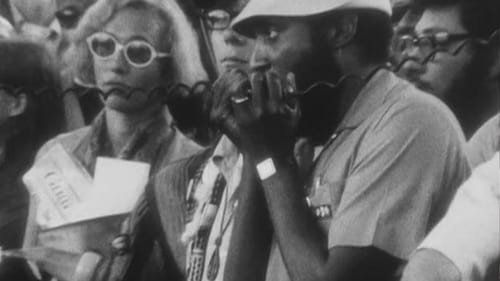
Camera Operator
American Revolution 2 begins with footage of the political demonstrations at the 1968 Democratic Convention and the forceful reaction of the Chicago Police Department and the National Guard. Investigating the lack of an African American presence at the protests, the filmmakers follow members of the Chicago chapter of the Black Panther Party as they search for common ground with a variety of white activist groups. In one scene, Panther Bobby Lee and members of the Young Patriots, a community of white Appalachian activists living in the Uptown neighborhood of Chicago, organize to protest police brutality. The seemingly disparate groups find shared social and political objectives that overcome racial differences – police violence, poverty, lack of employment, and poor living conditions. This potential for a cross-racial and interethnic political movement is the movie’s beautiful but unrealized dream.

Editor
American Revolution 2 begins with footage of the political demonstrations at the 1968 Democratic Convention and the forceful reaction of the Chicago Police Department and the National Guard. Investigating the lack of an African American presence at the protests, the filmmakers follow members of the Chicago chapter of the Black Panther Party as they search for common ground with a variety of white activist groups. In one scene, Panther Bobby Lee and members of the Young Patriots, a community of white Appalachian activists living in the Uptown neighborhood of Chicago, organize to protest police brutality. The seemingly disparate groups find shared social and political objectives that overcome racial differences – police violence, poverty, lack of employment, and poor living conditions. This potential for a cross-racial and interethnic political movement is the movie’s beautiful but unrealized dream.

Director
American Revolution 2 begins with footage of the political demonstrations at the 1968 Democratic Convention and the forceful reaction of the Chicago Police Department and the National Guard. Investigating the lack of an African American presence at the protests, the filmmakers follow members of the Chicago chapter of the Black Panther Party as they search for common ground with a variety of white activist groups. In one scene, Panther Bobby Lee and members of the Young Patriots, a community of white Appalachian activists living in the Uptown neighborhood of Chicago, organize to protest police brutality. The seemingly disparate groups find shared social and political objectives that overcome racial differences – police violence, poverty, lack of employment, and poor living conditions. This potential for a cross-racial and interethnic political movement is the movie’s beautiful but unrealized dream.
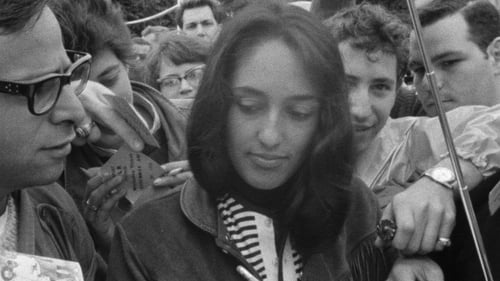
Editor
Black and white footage of performances, interviews, and conversations at the Newport Folk Festival, from 1963 to 1966. The headliners are Peter, Paul and Mary, Joan Baez, Pete Seeger, and Bob Dylan, who's acoustic and electric. Son House and Mike Bloomfield talk about the blues; John Hurt, Howlin' Wolf, and Sonny Terry and Brownie McGhee show its range. The Osborne Brothers perform bluegrass. Donovan, Johnny Cash, Judy Collins, Mimi and Dick Farina, and others less well known also perform. Several talk musical philosophy, and there's a running commentary about the nature and appeal of folk music. The crowd looks clean cut.
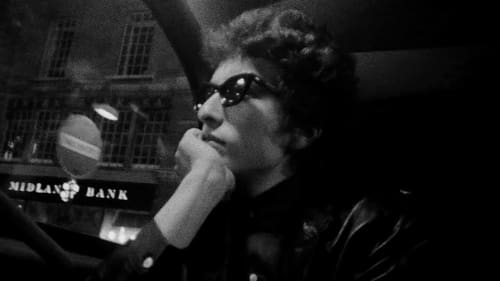
Camera Operator
A Caminho do Leste é considerado um dos documentários musicais mais revolucionários de todos os tempos. Aqui, o diretor D. A. Pennebaker acompanha Bob Dylan durante sua turnê pela Inglaterra em 1965 e capta momentos da intimidade do artista que nunca mais voltaríamos a ver.














